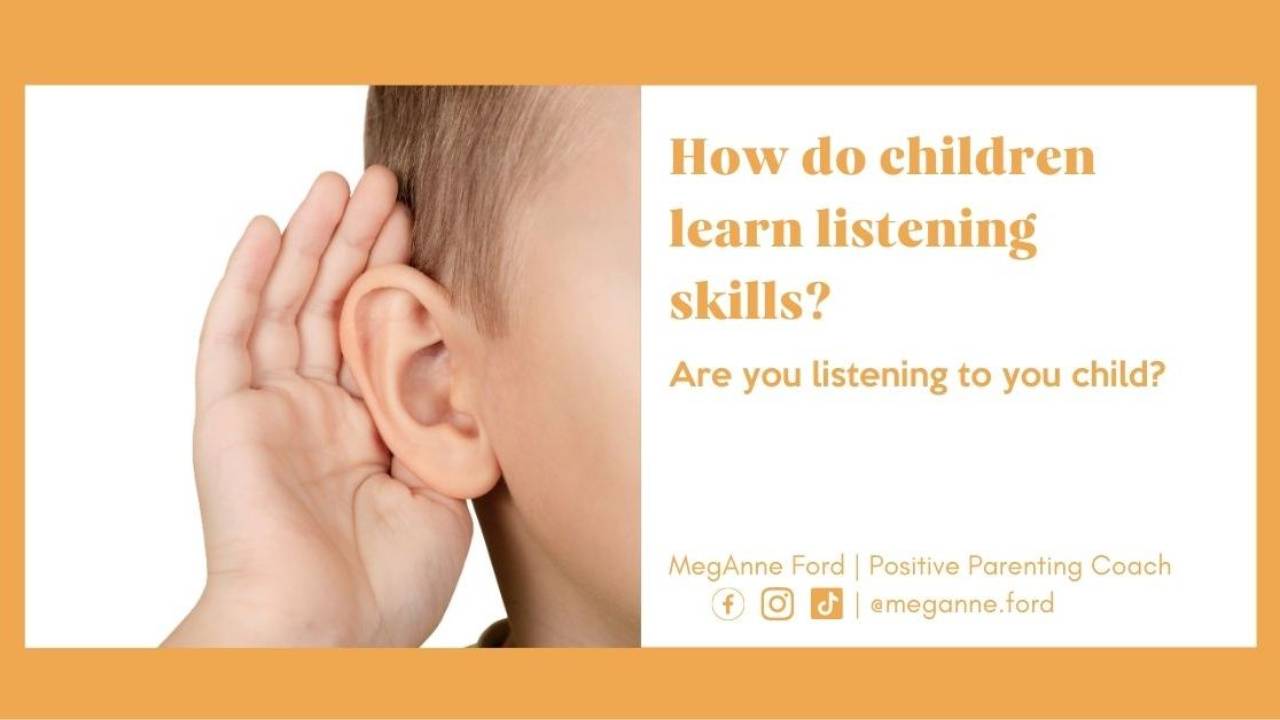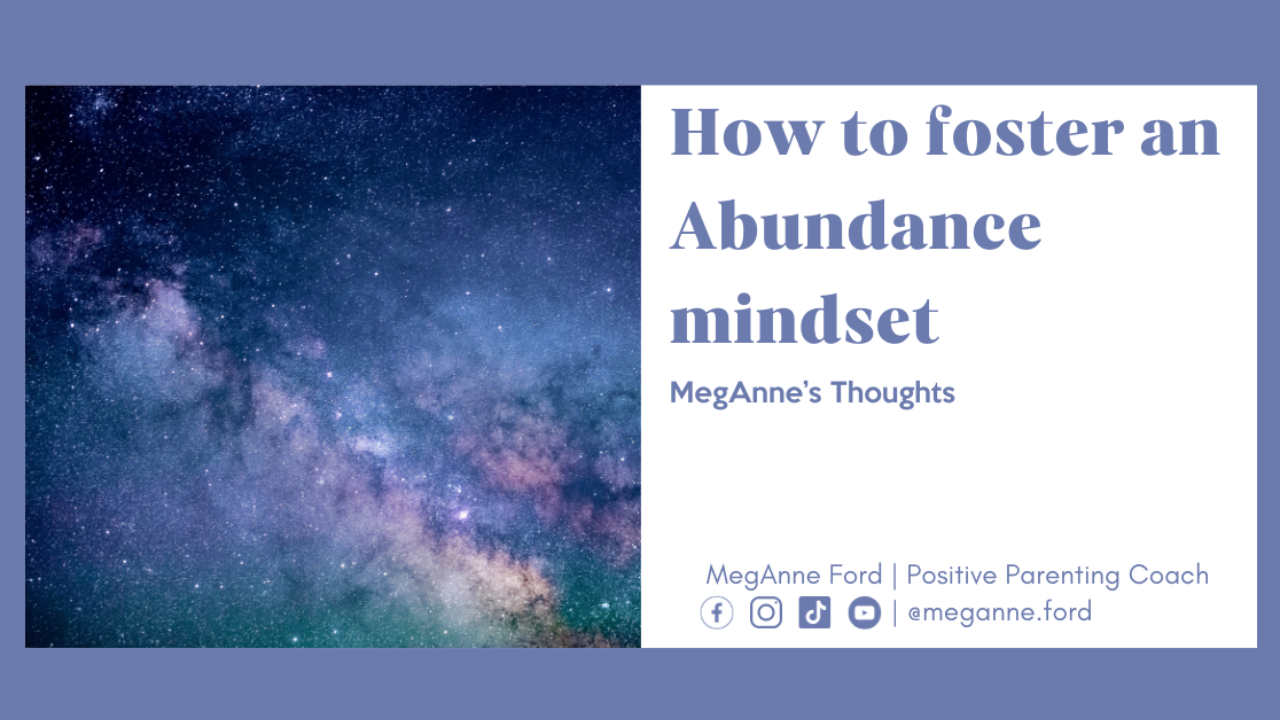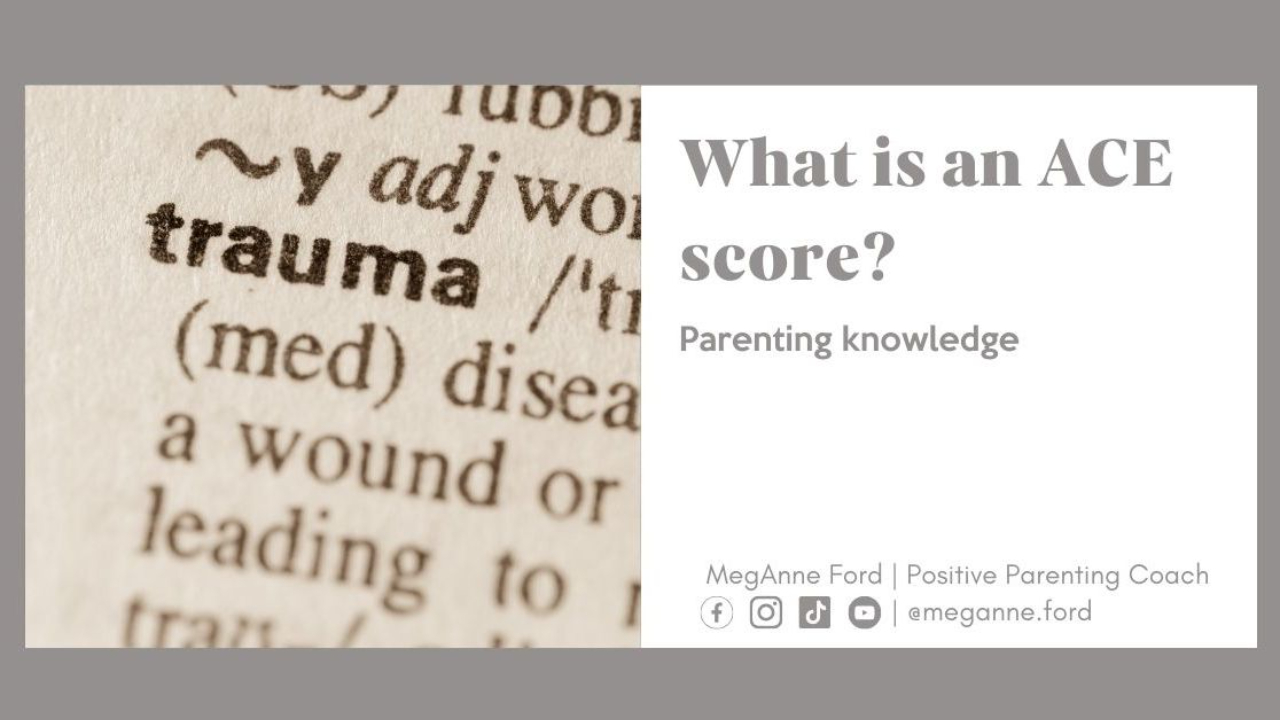
What is an ACE score: Parenting knowledge
Sep 07, 2023
You can WATCH or LISTEN to this content
The following information expands our knowledge of what childhood trauma is and its impact.
Trigger warning: We are working through, from a birds-eye view, what trauma is and its effect on the body. Listen to your body. You could get triggered, which is normal. You are safe here to take a break and come back. Learning about these things can only propel you forward in life.
Meet yourself with love and grace.
The information below serves as a conversation opener and public awareness, NOT a substitution for professional mental health support.
Takaways
-
Childhood Trauma's Profound Impact: Childhood trauma, or Adverse Childhood Experiences (ACEs), can significantly affect a person's health and well-being, increasing the risk of various diseases and reducing life expectancy.
-
ACEs Are Common: ACEs are not isolated incidents; they are common across different demographics and can have long-lasting effects on individuals.
-
Importance of Safe Adults: Children require at least one safe adult in their lives to help them process and navigate their worries and stresses rather than minimizing or ignoring them.
-
Preventing ACEs: ACEs are preventable, both at the macro level through community outreach and legislation and at the micro level by adults learning to be safe, soothing, and supportive caregivers.
“How Childhood Trauma Affects Health Across a Lifetime”
Dr. Nadine Burke Harris presented a TED Talk about her work exploring the effects of Adverse Childhood Experiences. It is a favorite of mine.
She shares some shocking statistics:
“In the mid-'90s, the CDC and Kaiser Permanente discovered an exposure that dramatically increased the risk for seven out of 10 of the leading causes of death in the United States. In high doses, it affects brain development, the immune system, hormonal systems, and even the way our DNA is read and transcribed. Folks who are exposed in very high doses have triple the lifetime risk of heart disease and lung cancer and a 20-year difference in life expectancy. And yet, doctors today are not trained in routine screening or treatment. Now, the exposure I'm talking about is not a pesticide or a packaging chemical. It's childhood trauma.”
This might be a new topic for you, and it is a new topic even in the medical community as quoted, Doctors today are not trained in routine screening or treatment.
This is a BIG topic that I care very passionately about because as I watched the TED Talk and learned about the ACE Score and its studies, a light switch turned on for me.
As you learn about the ACE Score and what it means, know that you are not alone. I provide this information to destigmatize and bring awareness, which is always the first step.
“Kids have nothing to worry about.”
As a teacher and now on social media, I hear it all the time.
Kids don’t have anything to worry about. They shouldn’t worry about anything. There is nothing to cry about.
We minimize their problems when we ask the children in our lives to stop crying about something that is stressing them.
Both adults and children have things that worry them. They are just different things.
Who is served by thinking that children have nothing to worry about?
When a child falls, or they are facing a difficult time with a peer, or not having the color cup they wanted, who is served by thinking that they shouldn’t be worried about it or that it’s not that big of a deal?
The adult.
Here's the truth: children require a safe adult to help them process and navigate what they do worry about. Not to minimize or hide or leave them alone in their worries.
A Child benefits from at least one safe adult in their life.
If you are reading this blog, I know that you are a part of my community that is here to learn and grow, and if you want to join parents just like you striving to be better parents, subscribe here.
Your actions and behaviors dictate if you are a safe person for your child.
And you have an opportunity to practice the skills of being that safe adult for your child, not to avoid the struggles but to help them process the struggles inside my safe community of parents.
This is real life, and it is hard. For me, it was tough. To become a safe person for the children in my care, I had to ask myself:
Did I have a safe adult to help process my stresses in childhood?
What about you?
The answer was no for me, and I think the answer is no for many of us.
Breaking cycles and becoming aware of this work is so hard because it was not modeled. These were not the tools that we were raised with. The toolbox that was modeled and handed down to me was all fear-based tools.
It takes active work, very hard work, to learn new tools.
Someone on fire cannot be helpful, is a podcast episode that explores moments during the day that trigger us to feel a fire inside.
If I am consumed by fire, it makes sense that I want to minimize someone else’s fire.
The opportunity here is to take care of our own fire to help the children in our lives take care of their fires.
Now the question is, are you caring for yourself to be a safe person for your child?
We can stop minimizing, eliminating, and fixing their worries but help them navigate through them so that they can process, make sense of, and seek support through their worries.
This might be new for you. Being a beginner is not fun, and you are not alone. You can start at the beginning of the Positive Parenting Journey that I created with the Understanding Us Series.
Adverse Childhood Experiences
The ACE study stands for the Adverse Childhood Experiences Study.
The study in its entirety:
The original Ace study was conducted by Kaiser Permanente from 1995 to 1997, with two waves of data collection. In total, 17,000 HMO members from Southern California received physical exams, a confidential survey regarding their childhood experiences, and current health status and behaviors.
In short, the CDC wanted to answer if a child was exposed to adversity, would that impact their health as an adult?
The patients had to opt-in to receive the following 10-question quiz.
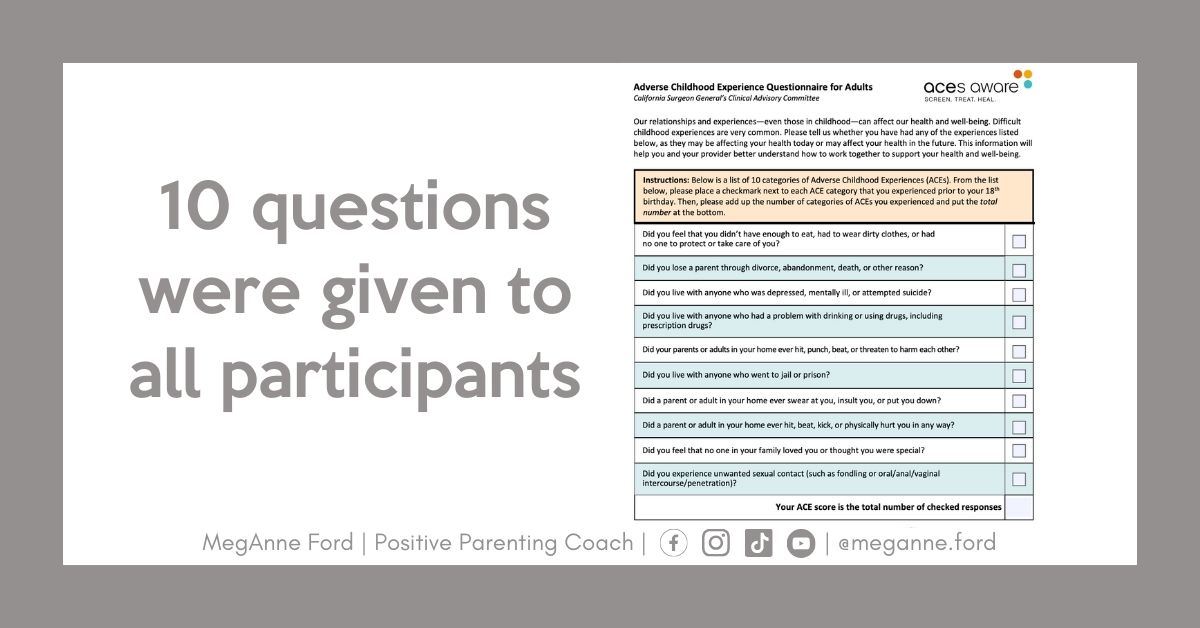
Warning: If you are not ready to determine how you will score on this test, please skip ahead.
What ACEs do you have?
Directions: For each question you answer YES to before your 18th birthday, you take a point and add them together at the end.
- Did you feel that you didn't have enough to eat, had to wear dirty clothes, or had no one to protect you or take care of you?
- Did you lose a parent through divorce, abandonment, death, or other reasons?
- Did you live with anyone who was diagnosed as mentally ill or attempted suicide?
- Did you live with anyone with a problem with drinking or using drugs, including prescription drugs?
- Did your parents or adults in your home ever hit, punch, beat, or threaten to harm each other?
- Did you live with anyone who went to jail or prison
- Did a parent or adult in your home ever swear at you, insult you, or put you down?
- Did a parent or adult in your home ever hit, beat, kick, or physically hurt you in any way?
- Did you feel that no one in your home loved you or thought you were special?
- Did you experience unwanted sexual contact such as fondling or oral anal vaginal intercourse and penetration?
If you choose to look at the questions and score yourself, you are not alone.
My personal ACE score is 7.
Now that you know your ACEs, what does it mean?
My experiences leave me open and vulnerable to future health outcomes, which is why I am so passionate about my work with parents.
I am committed not only to talking but also to holding space for parents. My parents didn’t have access to the support that I provide, and it will always negatively impact me.
I know by reading the ACE’s study and resources and continuing to show up in these spaces, I know that I am not alone, which gives me comfort.
Breaking Down the ACE Study
The study concluded that this is a big problem, hiding in plain sight.
ACEs are common.
61% of adults surveyed across 25 States reported that they had experienced at least 1 type of ACE.
1/6 adults reported that they had experienced 4+.
If you are alarmed by your number, I hope you know that you are not alone.
Preventing ACEs could potentially reduce a large number of health conditions. For example, it could reduce up to 1.9 Million cases of heart disease and 21 Million cases of depression.
Those are big numbers to conceptualize.
We can also recognize that some children are at greater risk than others to experience 4+ types of aces, women, and several racial, ethnic, and minority groups.
ACEs have a costly social and economic cost to families, communities, and society.
Out of the 17,000 participants in the initial study:
30% 0 ACEs
50% 1 - 3 ACEs
20% 4+ ACEs
There are now over 50 different peer-reviewed studies that really dug into this concept in all of the different areas. They found that those numbers are accurate if not generous for the number of people claiming to have 0 ACEs, which could be around only 17%.
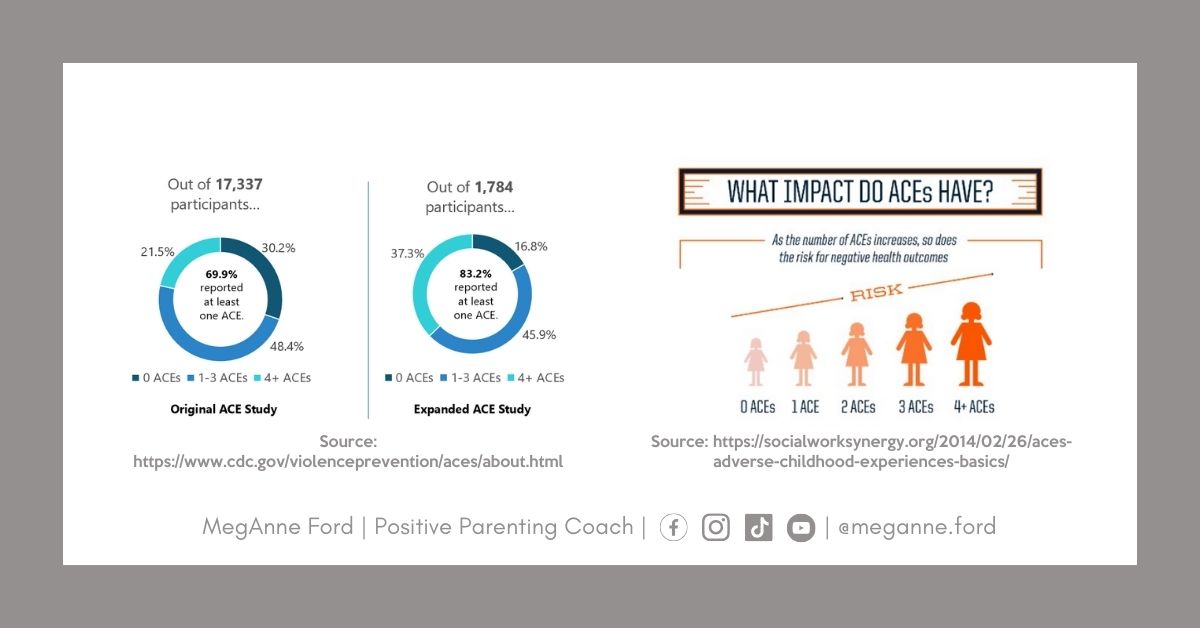
Why does someone's ACE score matter?
Someone's ACE score matters because it indicates that their body has gone through these stressful experiences and affect their nervous system, leading to a smaller tolerance window.
The original study has been expanded from the Micro, interpersonal to the Macro, systemic level to include experiences such as bullying, community violence, neighborhood safety, racism, and living in foster care.
When we experience these events as children and do not have safe caregivers to help soothe, co-regulate, and process the stress, adaptive processes turn into maladaptive coping.
This means those same alarm systems are going off, but maybe they're going off at inappropriate times.
When we look back on how we assume things and how we interpret those behaviors in front of us, those alarms start going off. We might interpret the cat as a tiger.
In the blog post “Parenting is so hard, and you are in a safe place,” we explore why it is best to check our assumptions.
That is then linked to why having a safe and secure caregiver that helps a child co-regulate is essential. You can learn more about that in the blog “What are regulation, co-regulation, dysregulation, and auto-regulation?”
When children are helped to regulate those stresses, not adding more stress, they can question their assumption and wonder if the tiger is actually a cat.
The work I coach is all about asking ourselves repeatedly, “Am I acting as a support? Or am I acting as a stressor?” My clients are learning and practicing how to center the child’s experience. I support parents with coming into awareness, education, and practicing becoming aware of their own alarms to regulate themselves first to share their calm with their child and prevent adverse childhood experiences.
Subscribe here if you want to learn more about how to join in this work!
How to prevent ACE
“ACEs are preventable. There are a number of factors that may increase or decrease the risk of perpetuating and/or experiencing violence. To prevent ACEs, we must understand and address the factors that put people at risk for or protect them from violence. Creating sustainably safe, stable, nurturing relationships and environments for all children and families can prevent ACEs and help all children reach their full potential.”
This has been taken directly from the CDC website.
There is Macro work to be done to prevent ACEs, including Legislative, community outreach, and education.
Just as important is the micro inside of our homes. As adults, can we step into learning, practicing, and healing our stress wounds?
If you work with me or want to work with me, I model meeting ourselves where we are now. It is easier said than done. There is an ebb and flow to meeting yourself where you are.
The CDC has many ideas to support parents in doing the work at the macro level, like strengthening economic support to families, family leave, daycare, therapy, and reducing violence and adversity in public education.
When Families and teachers have support, they have more resources to support themselves and, in turn, the children in their care.
How can you prevent ACEs on the Mirco level?
In my programs, I teach and coach skills of social-emotional learning. I have built my entire platform on the thought process. When parents have awareness and the tools to be safe, soothing, supportive, and secure caregivers, I know they will.
No parent wakes up and says, “A good day to add to my child’s stress.”
Another blog that goes deeper into the relationship between child and parent relation is: “Meganne Ford, the parenting coach near me.”
ACEs apply to us, that is why we ignore it.
“You know, at first, I thought that we marginalized the issue because it doesn't apply to us. That's an issue for those kids in those neighborhoods. Which is weird, because the data doesn't bear that out. The original ACEs study was done in a population that was 70 percent Caucasian, 70 percent college-educated. But then, the more I talked to folks, I'm beginning to think that maybe I had it completely backwards. If I were to ask how many people in this room grew up with a family member who suffered from mental illness, I bet a few hands would go up. And then if I were to ask how many folks had a parent who maybe drank too much, or who really believed that if you spare the rod, you spoil the child, I bet a few more hands would go up. Even in this room, this is an issue that touches many of us, and I am beginning to believe that we marginalize the issue because it does apply to us. Maybe it's easier to see in other zip codes because we don't want to look at it. We'd rather be sick.” ~ Dr. Nadin Burke Harris
Wow, coming in strong with this.
When I first listened to this part of the TED Talk, I felt big emotions. I didn’t understand why I was being introduced to this important information through a TED Talk online rather than from any education I experienced from college to further education.
I had no awareness until I heard this TED Talk. I could take my anger of not knowing this and turn it into gratitude that I can now share with you.
Once I knew of the ACE Study, I could step into empowerment.
So, just like she challenges us to get curious, maybe we distance ourselves from studies like this because it is too close to us.
Saying things like “It isn’t that bad,” “My childhood wasn’t that bad,” “That stressful thing didn’t happen all the time.”
We minimize our own childhood experiences.
Are we a part of the system?
We are a part of the system because the system is impacting each of us.
Often, I go LIVE on TikTok Mondays to pull 3 cards from different decks and connect them to one intention to take forward for the week in the eyes of a parent.
I will share this card pull with you because it relates to the work above.

First card: “Oneness is my true Nature.”
Connection back to “Oneness” validation, connection, holding you standing in yours.
We don't need to distance.
We don't need to put space between them.
We can invite.
Let's bring it closer because we are all part of this system of Earth and humanness.
Second card: “Make it right. Correct something to make it the way you
want it to be or at the very least make it more fair and take responsibility.”
Third card: “Seven of Wands” - Courage and Inner strength: “A single wand stands up tall Ablaze with light the others fall away In shadows. Such is a story of the Seven of Wands you'll not find any strength or support from others, only yourself it's time to be truly courageous and stand up for your beliefs you may feel overwhelmed with caution and fear, but your internal fire will guide away.”
As we processed what these 3 cards together mean, we devised an example that the parents could relate to.
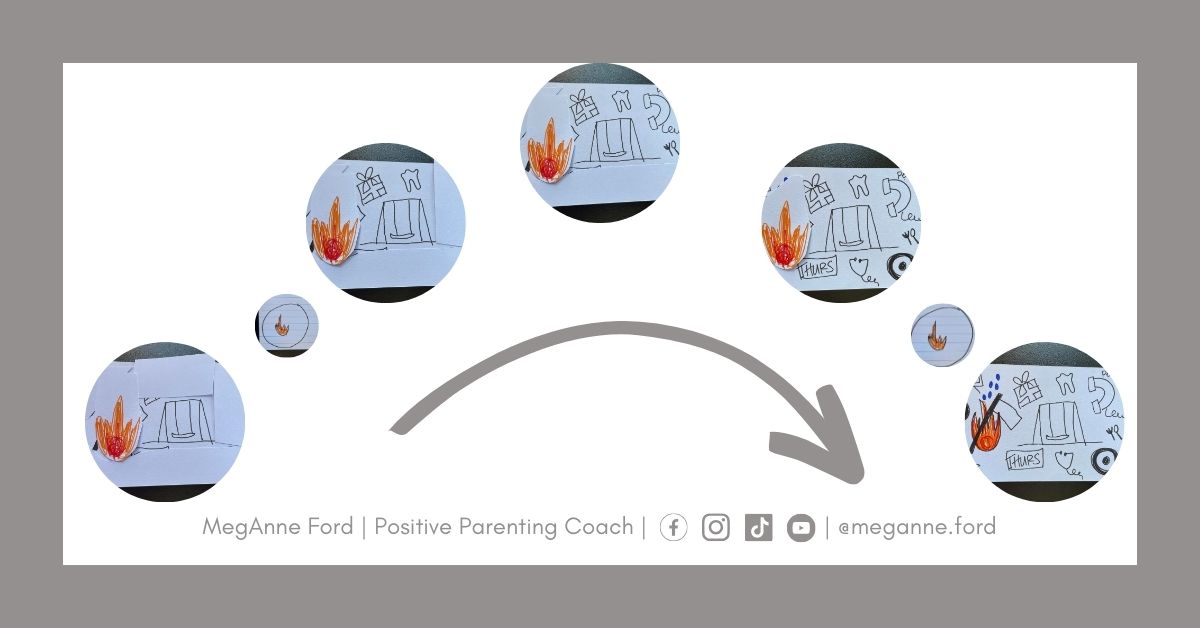
When you take your children to the playground, it becomes a stressful situation. (No snacks, no water, wrong footwear, not wanting to be there)
These stresses that we sometimes try to avoid sometimes look like a fire and then become an eruption.
The eruption inside of us becomes too much to bear, so we avoid going to the playground. The playground becomes an unsafe place. The fire lowers when we stop going to the playground, so the connection is valid. Avoidance solves the problem.
Until the same fire and eruption happen at a birthday party, a dentist, school, the store, meal times, bedtimes, screentime, or as specific as the entire day of Thursday!
We keep adding to the list that we see fire; fire means eruption, and eruption is scary, so we avoid it.
After avoiding this, we started to outsource the fire mitigation to the things around us: screens, daycare, babysitter, and family, and those worked for a bit until we realized, “Wait, do I want this.”
We go through the process. The fire is there. By avoiding the park, I am avoiding the fire. But, those things I want, I want to go to the park, birthday parties, we need to go to the doctor.
Now, you can feel empowered by choice.
Do you want those things in your life?
“No”, then keep them on your list to avoid.
“Yes, I do value these things. I do want to feel better in those spaces. I do want these experiences. I want those experiences for my children.”
Then perhaps it's pulling it back to say,
“Hey, that fire is not a warning sign to avoid. It's a warning sign to take care, soothe yourself, support yourself.”
Take care of the fire inside of us
This work is big, hard, and overwhelming!
A quote from Brene Brown:
"...When you hold someone accountable for hurtful behaviors and they feel shame, that's not the same as shaming someone. I am responsible for holding you accountable in a respectful and productive way. I'm not responsible for your emotional reaction to that accountability. Sadly, I've also learned that sometimes, even when the pain takes your breath away, you have to let the people you love experience the consequences of their own behavior. That one really hurts."
- Brene Brown "Atlas of the Heart"
I will relate “hurtful behaviors” to athletes competing in their field. A coach helps them improve their technique and skills. As a parenting coach, I do the same thing, but we are working on the parent's behaviors instead of Simone Bile’s latest dazzling floor routine.
Do you think that Simone Biles would have as many accolades and medals to her name without a coach?
I think sometimes we as humans, myself included, find it easier to look at someone's success as simple luck.
And well, there is luck in being born at the right time and place (maybe not).
The effort it takes to be “successful” at anything takes time, effort, and outside perspective.
Being held accountable for hurtful behaviors, as Brene said, is a big task and one that I argue should not be done alone.
I am preventing ACEs in children by working with parents to help build a parenting toolbox that creates a secure relationship with their kids built on trust, love, and accountability.
Don't you want to be successful in your relationship with your children?
Are you going to have falls and setbacks? Yes, so has Simone. You are in good company.
Shame is a tricky feeling.
Don’t let your shame hold you back from finding a safe place to explore your behaviors inside your very own home.
To consider
- How am I taking care of myself?
- Have I found safe spaces of support for me?
- Have I healed the wounds that I carry?
- How comfortable do I feel being held accountable for my own hurtful behaviors?
Please be gentle with yourself.
If you want to start today with your own quest to prevent ACEs, The Understanding Us Series would be a great place to start.







